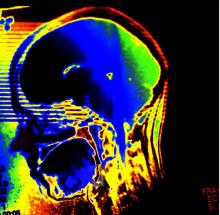An interesting correlation
The poltergeist phenomena is unusual in the paranormal realm, in that everyone pretty much agrees on its source. Poltergeist activity is almost universally (among paranormal buffs and investigators) understood to be tied (in ways we don't understand) to a particular person in the household. Remove the person, and the poltergeist stops… but it starts up again in that person's new location.
The current theory is that poltergeist activity is actually a manifestation of latent telekinetic ability. Most people are familiar with this from Stephen King's novel and hit movie, "Carrie."
Poltergeist activity is similar to ghostly phenomena, in that it involves a lot of unusual and inexplicable noises. But in addition, it includes a big component of objects being moved around. Proper ghosts rarely move things very far or very often, but a poltergeist will rearrange the entire contents of a room in a flash, smash an entire china cabinet, or stack every single book in the house into one big pile.
Poltergeists also seem to manifest a lot of rage. A ghost may turn a lamp on when it was off, or close a door (sometimes suddenly). But a poltergeist will tear an entire bed to shreds, rip the curtains from the curtain rods, flip over the dinner table, or catastrophically empty the contents of a kitchen cabinet onto the kitchen floor.
The activity is almost invariably linked to a pubescent girl in the house. Paranormal researchers often find this inexplicable. But that is because - not to put too fine a point on it - most paranormal researchers are dudes. Having actually BEEN a pubescent girl… I don't find it the least bit unlikely.
Not every pubescent girl exists at the center of a swirling cloud of raging poltergeist destruction. (Thank goodness.) And one clue to the difference between a "regular" girl and a poltergeist victim may be epilepsy.
As Javier Ortega points out in this post on his Ghost Theory blog, there is a surprisingly strong link between epilepsy and poltergeist activity. One researcher found that in researching over 4,000 cases of poltergeist phenomena, the subject at the heart of the activity was "almost always prone to epileptic seizures."
Epilepsy is caused by damage to the brain tissue which "cause the brain to be too excitable or jumpy." Although it is completely untrue that "you only use 10% of your brain," it's not too great a stretch to wonder if, along with seizures, the brain being "too excitable or jumpy" can juice up otherwise-hidden telekinetic abilities.
